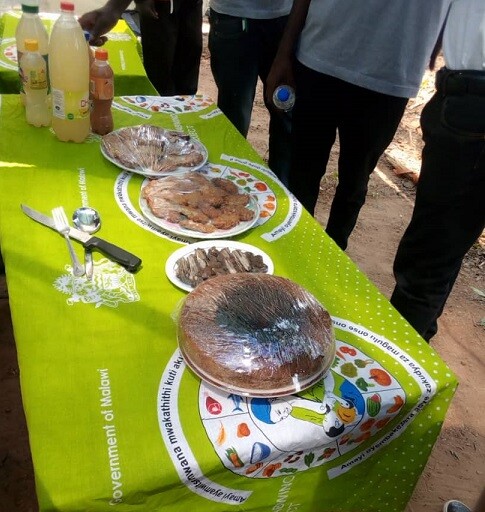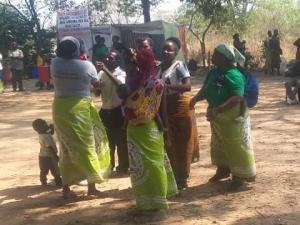
United Nations Children’s Fund (UNICEF) is working to reduce stunted growth in Malawi where stunting is a major challenge affecting children under five years.

As a way of alleviating the problem, UNICEF in collaboration with the Ministry of Health and Population implemented a program of distributing Micro Nutrient Powder (MNP) called Ndisakanizeni (mix me) to children aged 6 months to 24 months.
The aim of the program is to ensure that children are getting acceptable diet in terms of micro nutrient content in their food so that they grow well.
Speaking with reporters, Unicef Communications Officer Rebecca Phwitiko said the organisation came up with the program considering that breastfeeding cannot be enough for children.
Phwitiko added that they are therefore ensuring that the children are introduced to the powder on time to avoid stunting.
“Ndisakanizeni powder also prevents anemia. We are ensuring that hard to reach areas have access to the powder,” he explained.
According to Phwitiko, stunted growth among children was 47 percent in 2010 while now is at 37 percent.
Nkhatabay Chief Nutritionist Frank Msiska said that Micro Nutrients Powder, Ndisakanizeni, has 15 different types of salts which reduce stunting in children.
It contains six groups of food and is given once a day as porridge to children aged 6 months to 24 months.
He added that they have been working with health centres and local organizations as a way of reaching to everyone more especially those in remote areas.
“One of the challenges we faced is the issue of misconception but we have now managed to deal with it,” said Msiska.
Last week, UNICEF conducted a one day workshop and a media tour to Nkhatabay where journalists from Lilongwe, Mzuzu and Karonga went to Nkhatabay where they appreciated the situation on the ground.
The media practitioners had a chance to witness how people in area prepare six groups of food using the locally found crops.
Maula Health Centre under Nkhatabay District Hospital is one of the facilities where the program is being implemented.
The health centre which has 22 health personnel and provides service to a population of 299, 000 population. In the areas surrounding the health centre, there are 225 children under the program of Ndisakanizeni.
Implementers of the program at the health centre said there is a challenge of lack of awareness campaigns and exchange visits to share ideas and knowledge regarding the project which UNICEF pledged to address in time.
One of the program promoters from Mbetera village in the area of Traditional Authority of Jumbo Maggie Mangani, appreciated the implementation of the program saying it has proved that Ndisakanizeni reduces stunting considering the number children who have benefited from the program.
Mangani admitted that from the 240 households which were targeted, there is huge improvement and people have also learnt to be hygienic, use hygienic pit latrines and eat six groups of food everyday by using locally found crops such as cassava and fruits.
Commenting on the same, one of the beneficiaries King Chiumia said that the Ndisakanizeni powder has improved the health of his son who was delivered through caesarean section.
Ndisakanizeni program is being implemented by UNICEF with support from World Bank and Germany Government. Fourteen districts including Lilongwe, Blantyre, Salima, Dedza, Nkhatabay, Mzimba, Neno, Nkhotakota, Zomba and Ntcheu have benefited.














